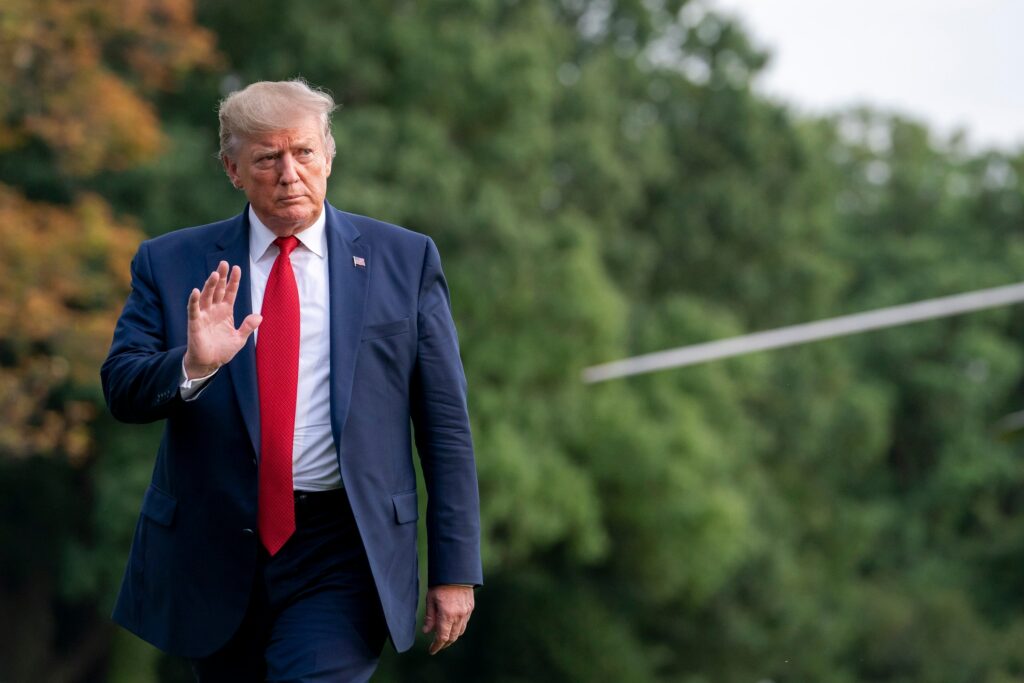In just 100 days, Donald Trump has transformed America’s political system. Since returning to the White House as the 47th president, Trump has moved faster than any modern leader to push his agenda. With a flood of executive orders, budget changes, and high-stakes moves, he has reshaped government operations and challenged constitutional norms. Supporters cheer his swift action as long-overdue change. Critics warn that Trump’s use of power threatens American democracy. What follows is a closer look at the six most dramatic moments from Trump’s first months back in office.
Trump Team Challenges Courts, Shakes U.S. Constitution
In January, Vice President JD Vance posted online that judges cannot limit a president’s authority. The comment caused outrage among legal experts who said the post ignored 200 years of U.S. legal tradition.
America’s government is based on three equal branches—executive, legislative, and judicial. But Trump’s team moved quickly to stretch the limits of presidential power. The White House made budget cuts without Congress, while courts pushed back by blocking over 100 executive orders.
Immigration changes led to some of the biggest legal fights, including mass deportations without trials. A federal judge warned the system could collapse if tensions continue to rise. Trump claimed he would respect court rulings but often delayed action.
Elon Musk Launches “Chainsaw” Cuts Across U.S. Agencies
In a major event, tech billionaire Elon Musk stood beside Argentine President Javier Milei and accepted a golden chainsaw. The gesture symbolized Musk’s plan to slash U.S. government programs.
Musk began cutting programs and budgets at federal agencies. USAID collapsed, and the Department of Education saw plans for dismantling. Essential services like veterans’ support and Social Security faced possible cuts.
Public anger followed as citizens flooded town halls to protest. Trump defended Musk’s approach, saying waste had to go. But critics warned the federal debt could rise sharply if key entitlement programs were weakened to fund tax cuts.
Tariff Shock Sends Markets into Freefall
In a surprise announcement, Trump revealed massive new tariffs aimed at boosting American industry. Wall Street expected modest changes but instead faced trade barriers that caused the S&P 500 to crash.
Stock trader Richard McDonald described the moment as “pure panic,” with billions in value lost within hours. Mortgage rates rose, consumer confidence dropped, and unemployment crept upward.
Despite fears of a new recession, Trump’s approval among blue-collar workers held steady. In former factory towns, many voters saw the tariffs as a step toward rebuilding national pride.
Deportations Accelerate, Splitting Families
One mother, Myrelis Casique Lopez, saw her son in chains on a television broadcast. He had been deported and now sat in a foreign prison known for harsh conditions.
Trump’s immigration crackdown labeled many as criminals, even when families claimed they were innocent. Border crossings dropped, but civil rights groups warned that raids were hitting legal residents and peaceful protestors.
Immigration agents entered homes, schools, and even churches. Universities, long seen as safe spaces, became targets in Trump’s campaign. Some campus leaders voiced fear, while others pushed back in court.
Elite Universities Face Off Against White House
Harvard University took a bold step by suing the Trump administration. The reason: federal funding had been frozen after the White House accused Harvard of ignoring antisemitism on campus.
President Alan Garber called the accusations false and said they threatened academic freedom. Columbia University gave in to government demands earlier, agreeing to sweeping changes.
Trump also pressured corporations and law firms. Some paid millions to settle disputes or keep business deals alive. Even media companies settled lawsuits quietly to avoid conflict with federal regulators.
Trump Ends DEI Programs, Sparking National Debate
Trump blamed a deadly airline crash on diversity hiring, though no evidence supported the claim. He then ordered all federal diversity, equity, and inclusion (DEI) programs to end.
Private companies followed. Tech giants like Meta and banks like Goldman Sachs reduced or removed their DEI efforts.
Some historians worry that this move erases the contributions of minority groups. At Arlington Cemetery, tributes to Black and female heroes vanished from public displays. Trump said he was fighting “identity politics,” but critics called it an attack on equality.
A Nation Transformed or Torn?
Trump’s first 100 days showed how much power a U.S. president can wield. With few new laws passed, many changes depend on executive action alone. That means future leaders could undo them unless Congress steps in.
Republicans are racing to turn Trump’s policies into permanent laws. Democrats, on the other hand, hope to regain control in the 2026 midterm elections.
Court battles will continue. The U.S. Supreme Court may decide the fate of Trump’s most controversial actions. As the nation heads into the next phase of Trump’s presidency, one thing is clear: America will never be the same.
